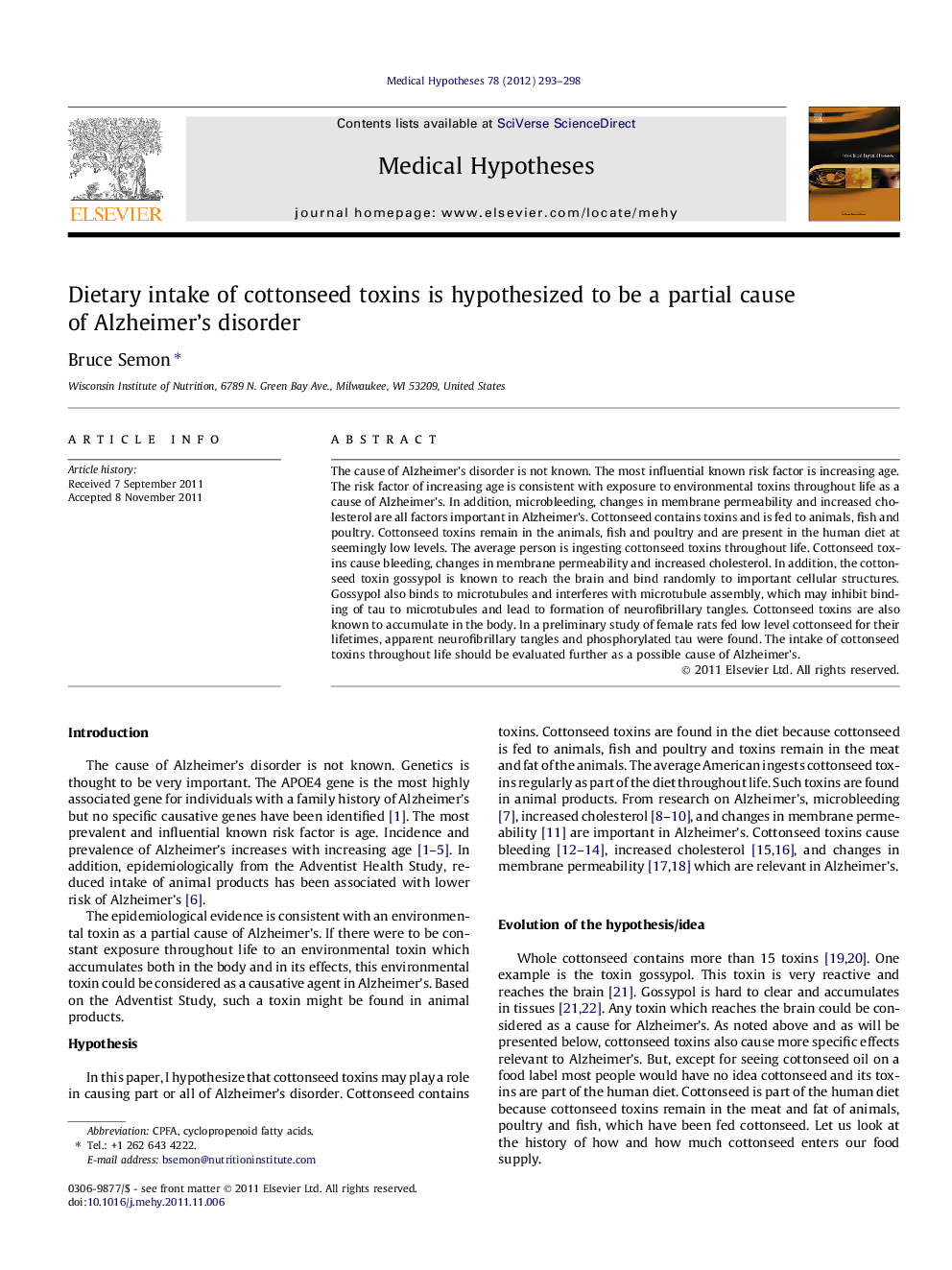| کد مقاله | کد نشریه | سال انتشار | مقاله انگلیسی | نسخه تمام متن |
|---|---|---|---|---|
| 2489551 | 1115045 | 2012 | 6 صفحه PDF | دانلود رایگان |

The cause of Alzheimer’s disorder is not known. The most influential known risk factor is increasing age. The risk factor of increasing age is consistent with exposure to environmental toxins throughout life as a cause of Alzheimer’s. In addition, microbleeding, changes in membrane permeability and increased cholesterol are all factors important in Alzheimer’s. Cottonseed contains toxins and is fed to animals, fish and poultry. Cottonseed toxins remain in the animals, fish and poultry and are present in the human diet at seemingly low levels. The average person is ingesting cottonseed toxins throughout life. Cottonseed toxins cause bleeding, changes in membrane permeability and increased cholesterol. In addition, the cottonseed toxin gossypol is known to reach the brain and bind randomly to important cellular structures. Gossypol also binds to microtubules and interferes with microtubule assembly, which may inhibit binding of tau to microtubules and lead to formation of neurofibrillary tangles. Cottonseed toxins are also known to accumulate in the body. In a preliminary study of female rats fed low level cottonseed for their lifetimes, apparent neurofibrillary tangles and phosphorylated tau were found. The intake of cottonseed toxins throughout life should be evaluated further as a possible cause of Alzheimer’s.
Journal: Medical Hypotheses - Volume 78, Issue 2, February 2012, Pages 293–298